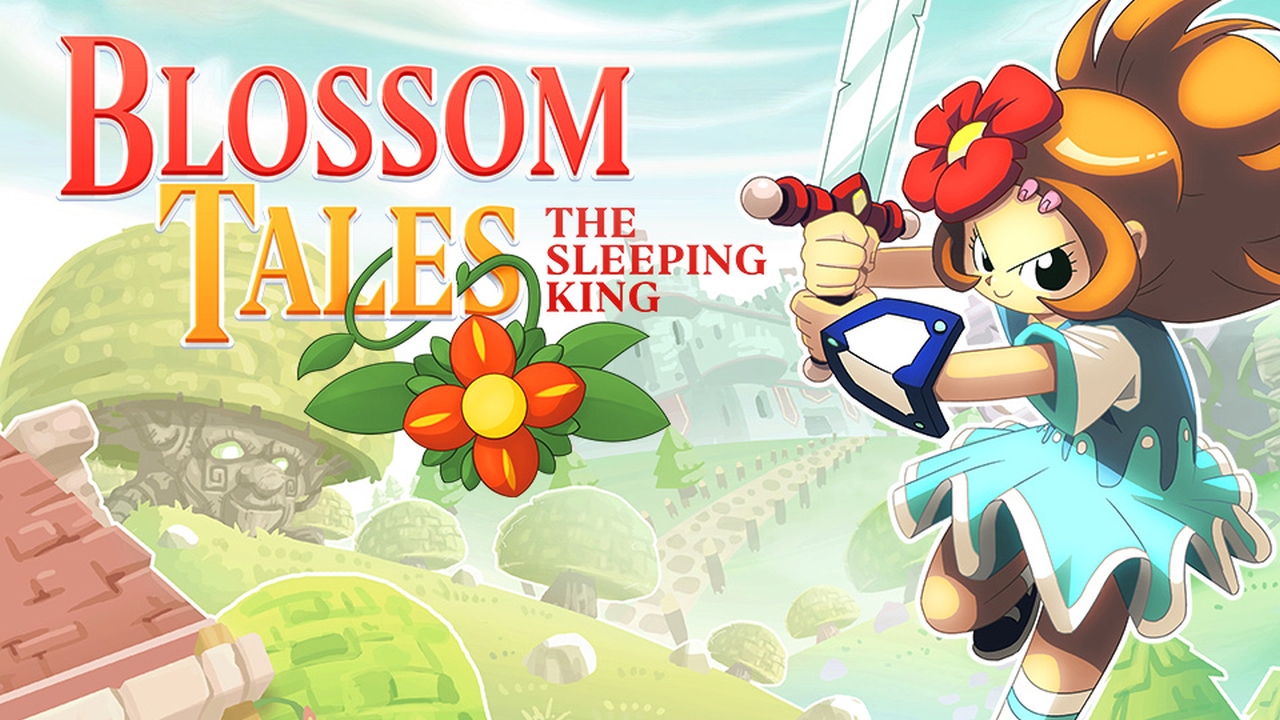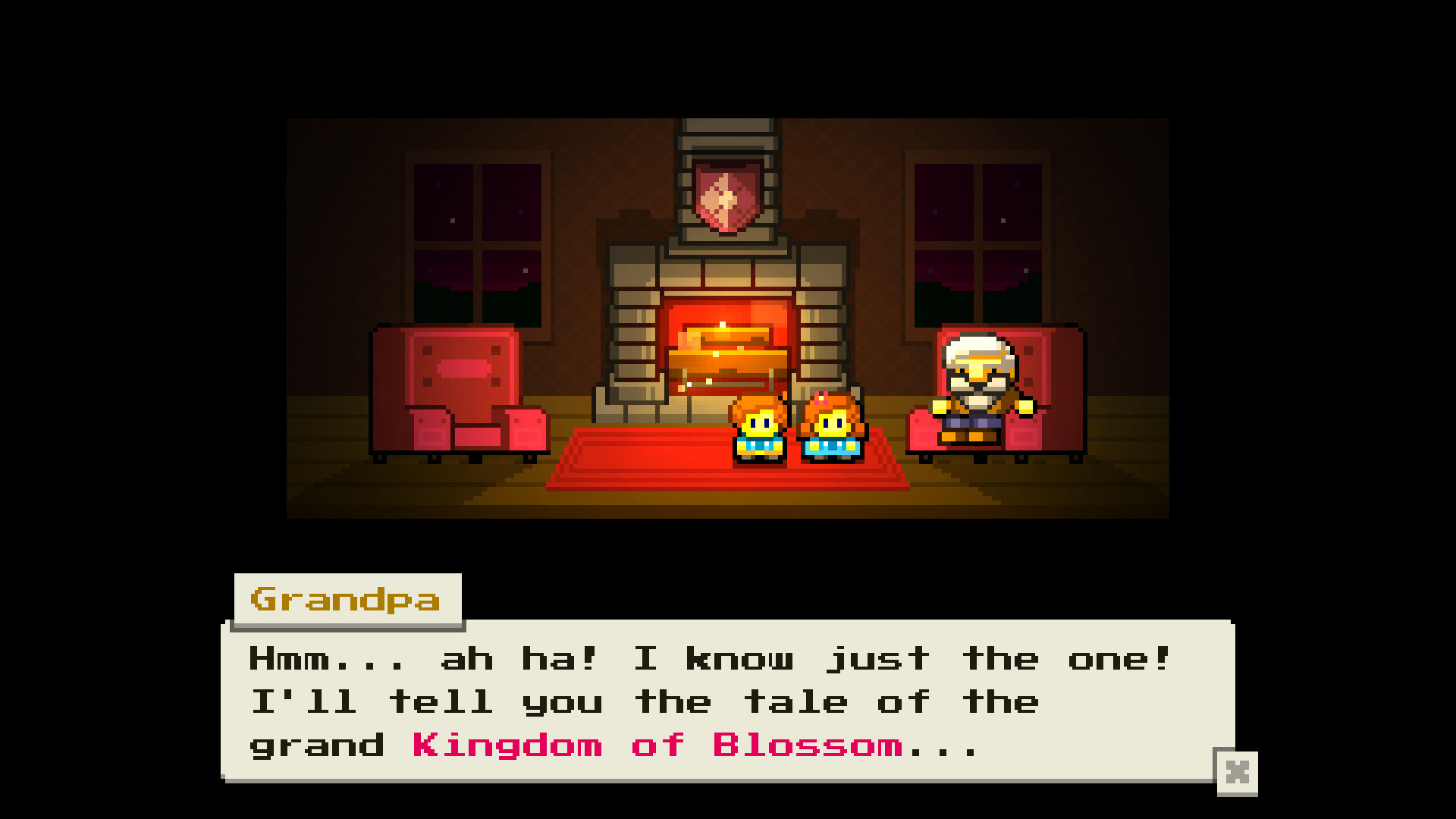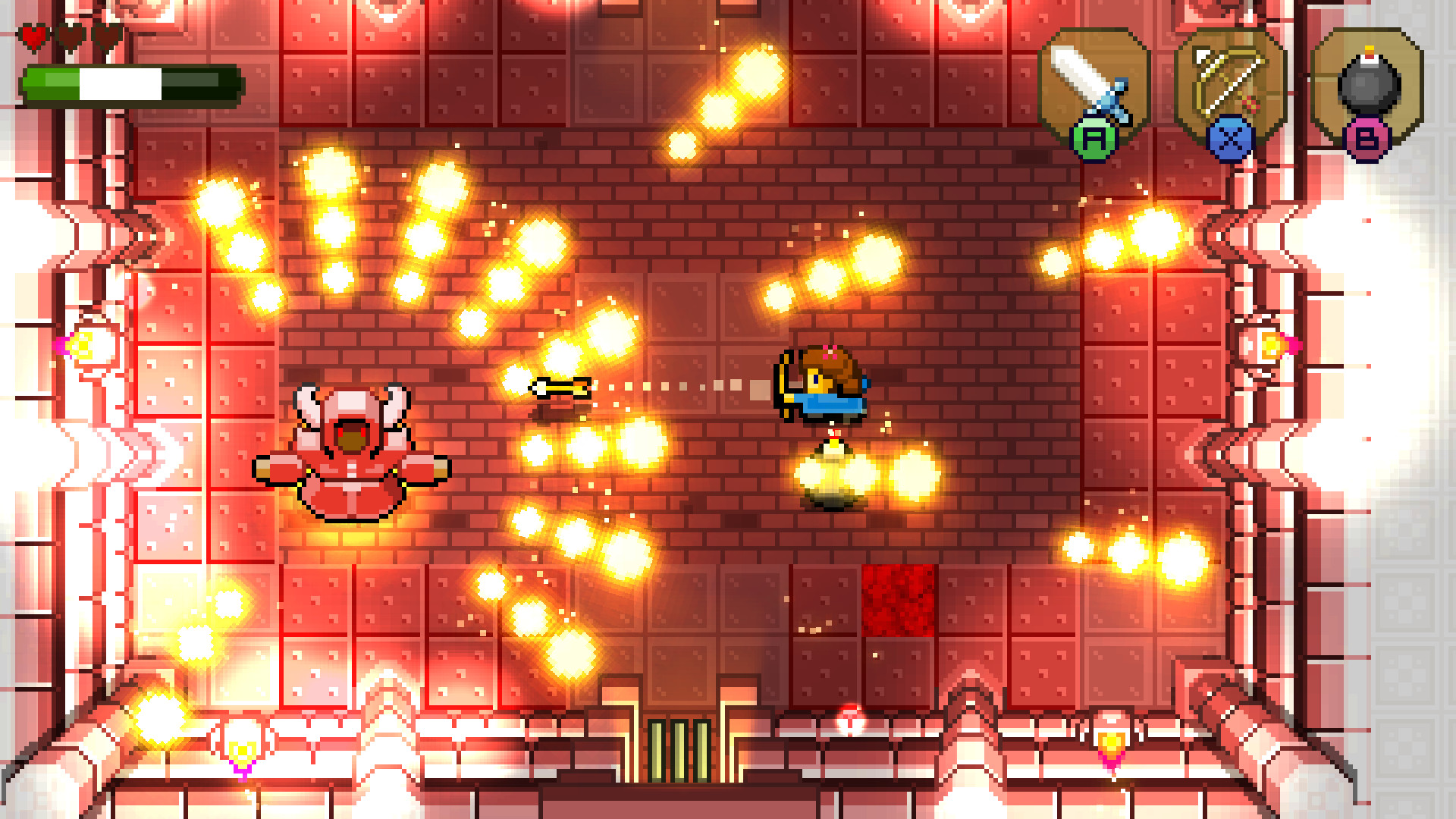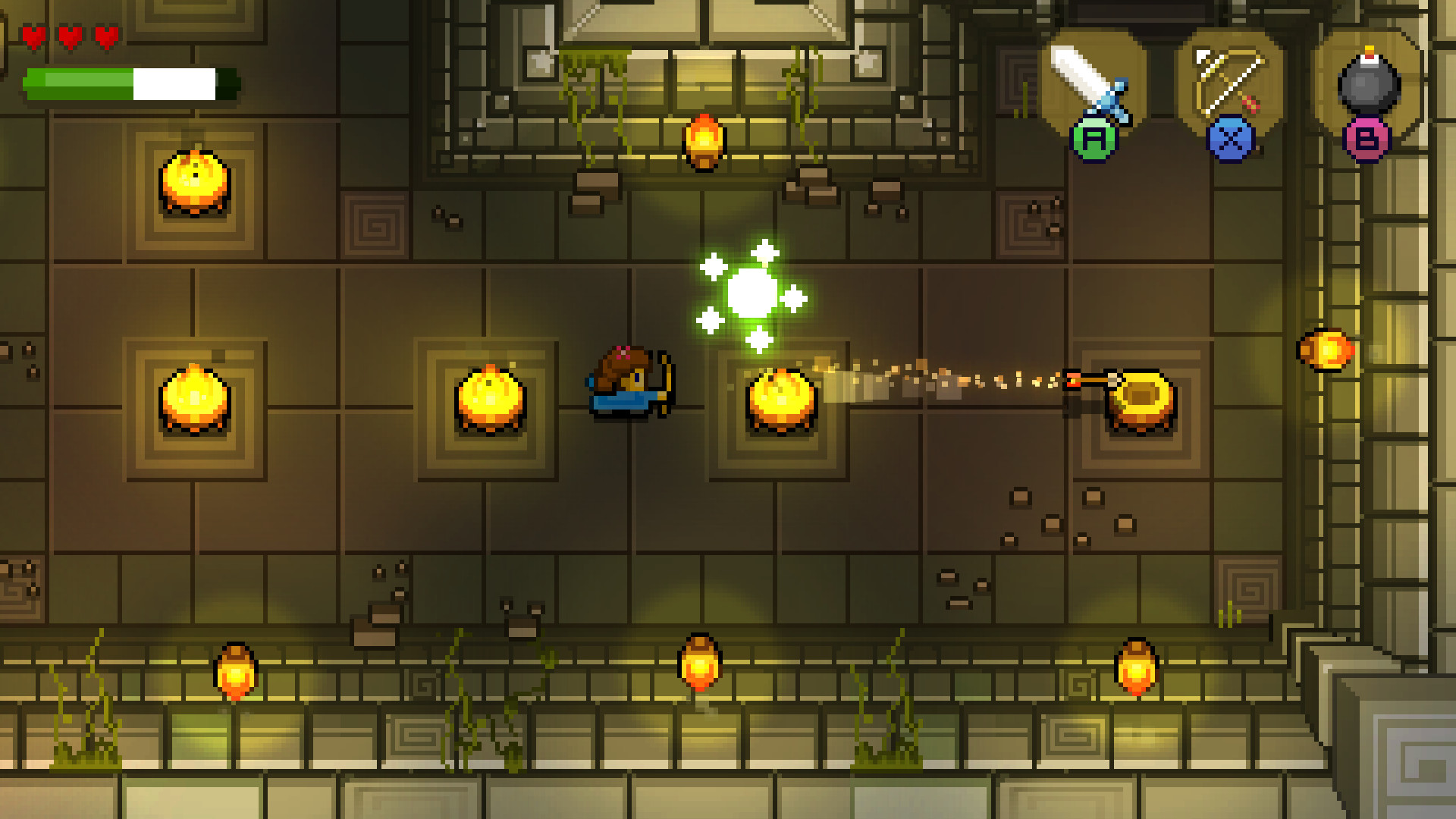The Legend of Zelda formula has been a timeless one, but also something that few companies other than Nintendo have taken a successful stab at. Ittle Dew and Oceanhorn have both attempted to provide different Zelda-like experiences, but with mixed results. Oceanhorn felt like a complete knock-off of the 3D variants, while Ittle Dew offered up a Flash-esque visual take on the overhead versions.
Blossom Tales hit Kickstarter a few years back and is a more comedic take on an overhead Zelda, with more combat and a different narrative style. Instead of going from point A to B, the story is told from the perspective of a grandfather telling the tale of Lily to his grandkids. They butt in from time to time when things get boring to them and it leads to amusing little breaks in the narrative that always manage to remind you of the game’s narrative device.
 Lily’s Tale is a Strange One
Lily’s Tale is a Strange One
Lily herself is a tough as nails girl who finds herself having to save the cursed king after his brother tricks him and lulls him to sleep. The brother wants to take over the kingdom, but Lily has to be a one woman army and make sure that doesn’t happen by toppling a slew of dungeons and destroying countless enemies within them. You’re armed with a shield and sword to start things off, and each allows you to do things you might expect while also putting them to use in new ways. The sword is your most reliable means of dispatching enemies – but its limited range means that defense will be your next-best friend to offense early on.
Using it to not only avoid a single enemy, but also block things like walls of arrows coming at you during intervals requires a great deal of timing and finesse. Blossom Tales tests your skills early and often and makes sure that players are never bored thanks to its sense of humor with the dialogue and fairly fast-paced action for a game of this type. There are puzzles to solve, but they don’t overwhelm players like the Zelda franchise can and it very much reminds me of the action-centric Oracle of Seasons. Puzzles are handled perfectly because if you die after completing one, you can still continue having beaten the puzzle – so you aren’t wasting time redoing them.
 Arrows and Flame Equal Good Fun
Arrows and Flame Equal Good Fun
The user-friendly design makes this a perfect game for those who found the traditional Legend of Zelda games to have too high a learning curve. Blossom Tales eases you into new mechanics and generally makes each dungeon feel substantial with new pickups. This is fantastic becauase with under half a dozen dungeons to work with, the core game can be beaten in around eight hours. Having the relative few dungeons be dense with content is important since it does make the adventure seem grander than sheer numbers would lead you to believe.
Combat is quick and traversal is convenient. Warp areas allow you to move around the worst with great ease and either zoom around parts of the overworld or the dungeons. Dying before reaching one is always a risk, but these devices are still a fantastic anti-frustration feature overall since they cut down on time being lost going from place to place.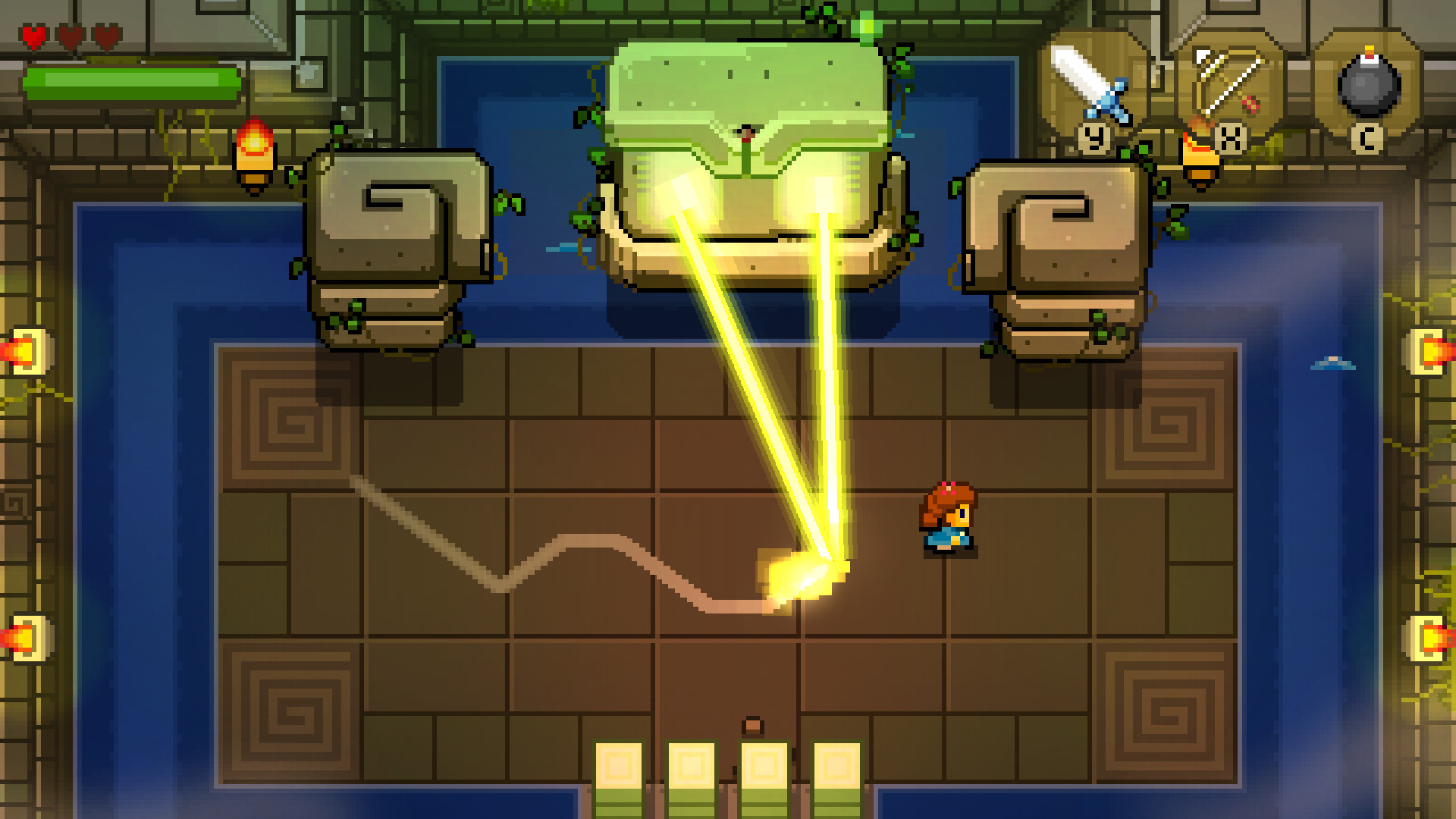
Large Lasers are Nothing to Fear
Having the game be so user-friendly is a bit odd for a Zelda-influenced game, but it’s a welcome change. Being free to explore is nice, but having to explore isn’t for everyone and has gotten in the way of my own personal enjoyment of many Zelda adventures. Having things be a bit more streamlined and linear helps a lot in this regard. It’s somewhat like how Super Metroid was wide open – but intimidating, while Metroid Fusion put you on a tight leash, but in doing so, players always knew where to go and there was no risk of getting lost. You’ll always be on-task in Blossom Tales and it makes everything you do feel important.
Visually, Blossom Tales features stunning pixel art most of the time. Lily herself looks a bit bland, but enemies and the world itself are vividly-colored. Environments pop with a lot of lighting effects and color richness that simply couldn’t have been done on that 16-bit hardware the game tries to replicate.
Puzzles and Peril Combine to Form Excitement
Light accurately reflects off of surfaces – with walls glowing next to a flame and ambient light affecting things the further the light is from them. Animation is somewhat limited when it comes to movement, but does get some mild flourishes when it comes to attacks. Lily’s leaping attack in particular has some major weight behind it thanks to the jumping and landing animations showing her struggling to use the blade properly. Bosses also fill the screen and get more attention for their movements as well.
Musically, the soundtrack is full of light fare that never strays too far from the Zelda formula – but doesn’t need to either. When you’re making a sendup, you can either rip the soundtrack off or go with something that uses the same instrumentation in a new way. Blossom Tales does the latter and provides a soundtrack that is full of whimsy and drama without feeling like a wholesale knockoff of Zelda. The sound effects are also a bit more robut than the norm and allow each blow you either land or sustain to feel substantial. Still, the same design is strong overall and does its own thing far more than most games that evoke Zelda.

Pros:
- Gorgeous pixel art for characters and environments
- Surprisingly high amount of ambient lighting that goes above and beyond any 2D Zelda
- Logical control scheme blends with responsive controls to create an enjoyable experience
Cons:
- Blossom Tales could stand to have more content
- Lack of dungeons will be a turnoff for some owners
Conclusion:
Blossom Tales: The Sleeping King doesn’t break any new ground – but it doesn’t need to either. It adds more comedy than a regular Zelda game and does a great job providing fast-paced action and a bit of puzzle-solving on both the PC and Switch.
